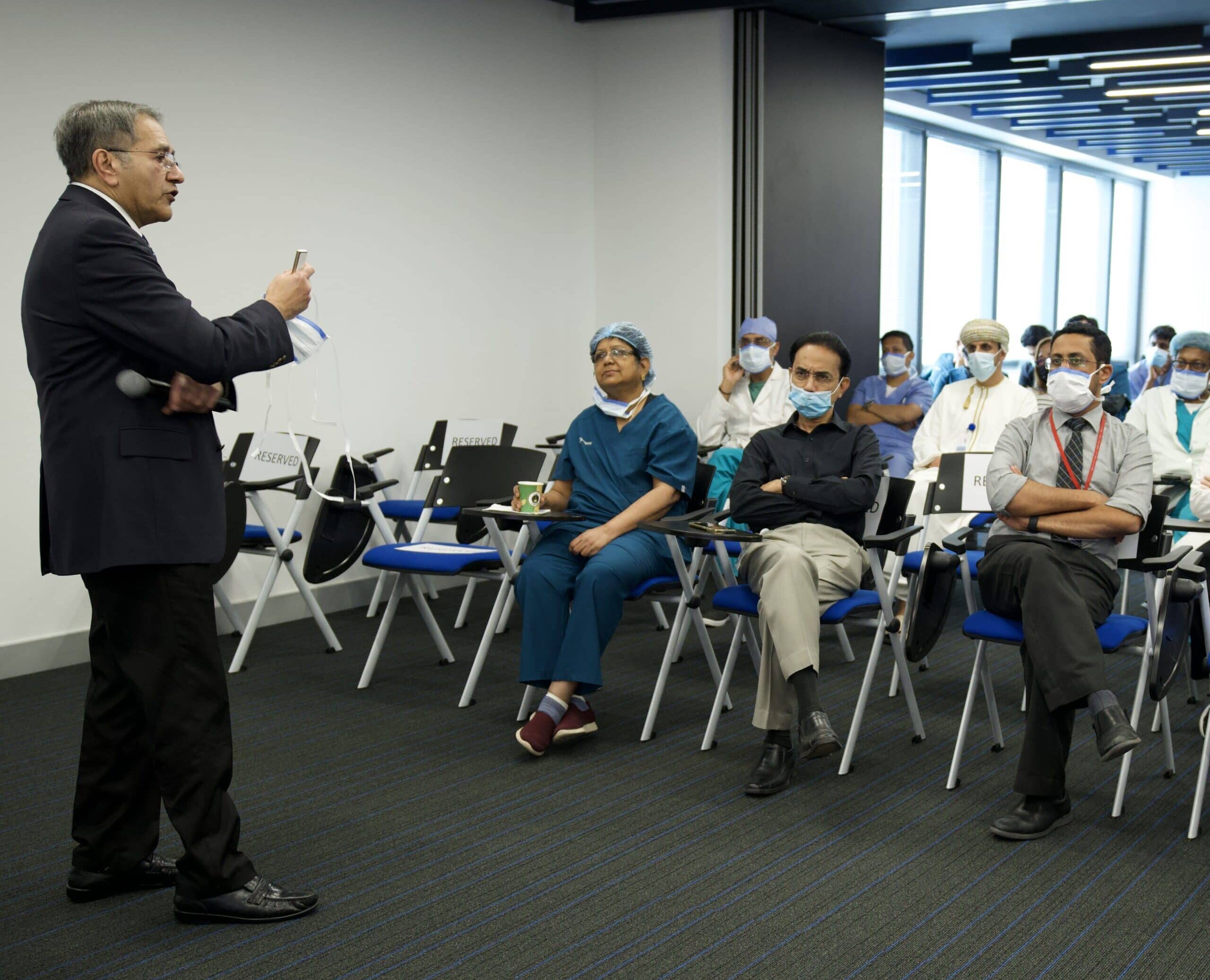Critical Care Symposium for Medical Professionals in Oman
The Sultan Qaboos Comprehensive Cancer Care and Research Center (SQCCCRC) spearheaded a symposium on ‘Critical Care’ with keynote speakers from Mayo Clinic, Rochester, Minnesota, USA. The Symposium progressed for two consecutive days.
The symposium targeted medical physicians, and specialists in critical care units/departments in the Center and from other hospitals and medical centers in Oman. Dr. Patrizia Andreoni, Senior Consultant Intensivist and Head of the ICU/HDU Department, SQCCCRC and Executive Organizer of the symposium said:
“The Symposium is an important and significant occasion for sharing knowledges, improving clinical practices, stimulating new research works and creating scientific and clinical networks.”
During the two-day symposium, the guests’ speakers who are experts in their respective field lectured on different subject related to the management of critical care of oncology patient, such as Acute Liver Failure, Weaning Protocols for the ICU, Managing Brain Metastases and Management of Febrile Neutropenia as an Oncological Emergency.
Dr. Gerard S. Kamath, MD Consultant Anesthesiologist, Mayo Clinic, discussed the definition of acute liver failure, the causes of the disease and the type of liver injury. as well as its classification by course, complications and causes of mortality. Standard and experimental therapies were also discussed. Dr. Kamath highlighted the indications of liver transplant in acute liver failure in addition to the management of patients awaiting transplant.
Dr. Gurinder (Gary) Vasdev, MD FASA FRCA and Consultant, Mayo Clinic explained the indications for ventilation and the principles of weaning from the ventilator. He demonstrated an example of a weaning protocol in current practice and highlighted the necessity of implementing local weaning protocol according to local settings and population.
Lectures on the second day were about managing “Brain Metastases” presented by Dr. Julie Hammack, MD Consultant, Mayo Clinic, and “The Management of Febrile Neutropenia as an Oncological Emergency” presented by Dr. Manish Kohli MD Professor, University of Utah, USA.
Dr. Hammack deliberated on the big changes happening in the management of brain metastasis in term of localizing, diagnosing and treatments and the use of corticosteroids and anticonvulsant medications for symptoms control. She expounded on the different roles of medical oncology (Chemotherapy, Targeted Therapy, and Immunotherapy), surgery and radiation oncology (Stereotactic Radiotherapy and Whole Brain Radiotherapy).
Dr. Manish Kohli engaged and educate the audience’ about infectious complications of neutropenic on patients and explained why febrile neutropenia must be treated as a medical emergency. He went through diagnostic investigations, most common source of infections and microorganisms (including bacteria, viruses, fungi, and Covid-19), role of prophylaxis and therapy. Dr. Kohli also highlighted the role of a multidisciplinary team in managing the non-responding patient.





